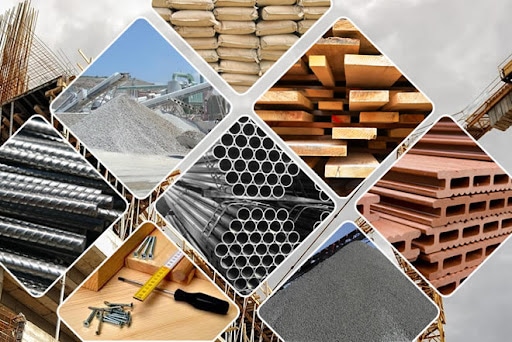Factors to consider when Choosing Construction Materials & Supplier Services

With the growth of internet use, e-commerce is becoming the most practical business module. The ever-expanding online market is currently too huge to be ignored by businesses of all kinds.
While the adoption of e-commerce can have both positive and negative implications, exponential developments in technology have improved the quality of the various products and services offered over the internet, including those related to construction.
Unfortunately, the process of evaluating construction materials and supplier services might involve more than it did before.
The quality of building materials, whether it is lumber, rebar, concrete, or any other, needs to meet the specified requirements consistently. This is because quality levels can have a direct impact on the structural integrity of a finished project.
As such, choosing the right building materials and supplier services can play a crucial part in the success of any construction project.
Here are tips to help you get started:
Identify the intended use
Identifying the intended use is the first step towards establishing the type of materials needed.
When it comes to building, the use of one material is no longer feasible. Even today, different types of construction materials serve different building purposes since each type is suitable for specific applications.
As such, you should identify what you’ll require before you purchase any building materials. Having a detailed outline of the structure you want to construct is, therefore, important.
With this kind of information at hand, you are likely to choose the most appropriate building materials and suppliers.
Focus on durability
Regardless of the type required, settling on the most durable building materials is important.
You need to choose materials that can adapt to the conditions they will be exposed to.
When used in a wet environment, for instance, some building materials like lumber can deteriorate faster than others like rebar.
In many construction projects, durability might be a more important consideration than the cost since it can help ensure the long-term use of a structure, promoting returns on investment.
The use of durable materials is likely to minimize the repair and maintenance costs incurred over time. As such, it’s important to choose materials that have the level of durability necessary for their area of application.
Consider availability
Some of the most reliable suppliers will have a range of products available for selection. With a variety of products to select from, you stand a better chance of evaluating which ones would match your needs the best.
On the other hand, opting for readily available materials eliminates the need to have the product imported, minimizing the likelihood of delivery delays. Such issues can result in project hold-ups and increased construction costs.
Look for long-term warranties
Whether you intend to use lumber, concrete, or rebar, choosing materials that have long-term warranties would be wise.
Many building materials including lumber, ceramic tiles, and roofing sheets come with warranties provided by manufacturers.
But wood products like lumber will often come with shorter warranty periods than metal building materials like steel.
The most experienced and reliable suppliers usually offer products with long-term warranties. They will have been in the business for longer than their counterparts, hence more dependable in terms of quality and delivery.
In case of damages, long-term warranties can mean the difference between low and high repair costs. Warranty durations can also be indicative of the manufacturer’s confidence in the products offered.
Consider the cost
Although cost is often a basic consideration when selecting construction materials, affordability should not be prioritized at the expense of durability.
Cheaper building materials are considered less durable than their more expensive counterparts by many people. However, you might still be able to identify durable materials within your budget if you conduct a thorough evaluation.
Make sure you consider the material’s life-cycle cost by assessing the product’s price to its lifespan.
Consider the materials’ ecological footprint
With people becoming increasingly aware of climate change and a greater need for green solutions, you need to assess your building’s effect on the ecosystem.
Apart from minimizing utility costs, eco-friendly construction materials like lumber can help ensure the proper utilization of resources.
When compared to their counterparts, suppliers who’ve adopted eco-friendly business modules are more likely to provide high-quality products and services.
When making construction plans, finding a structural engineer might prove helpful. Your chances of getting the right quality of building materials needed for your project should increase with proper consultation.
So consult relevant professionals like real estate agents, architects, and code inspectors before you settle on any building materials.







